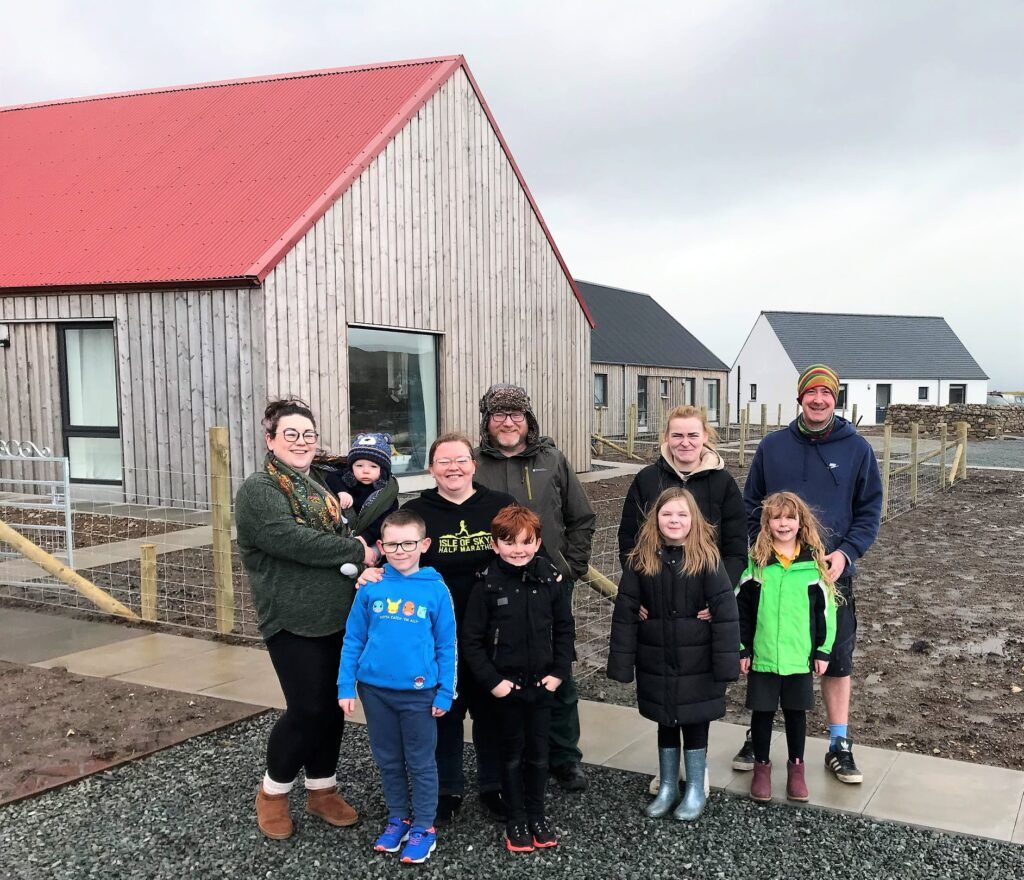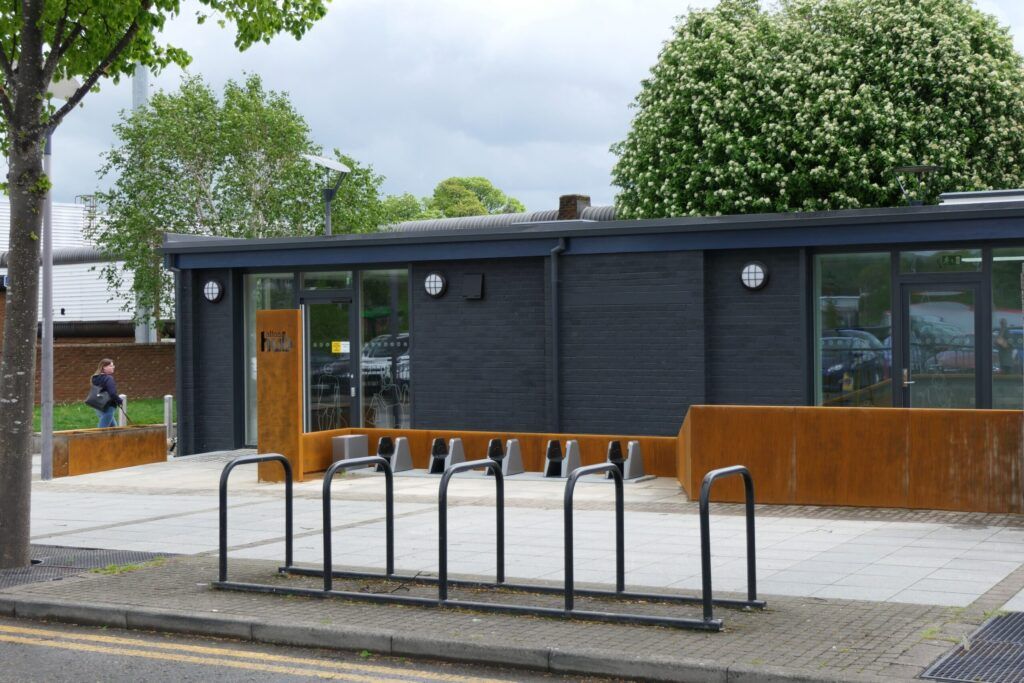Overview
SURF and the Scottish Government deliver the annual SURF Awards for Best Practice in Community Regeneration to identify and share examples of high impact in addressing social and economic problems in Scottish places.
Following each SURF Awards process, SURF arranges a series of in-person shared learning workshop events in central Scotland with representatives from winning and shortlisted projects. The goal of these events is to explore what transferable lessons these projects can offer to regeneration practitioners working in other sectors and geographies.
This briefing considers our 2023 shared learning events series, and draws out ideas to usefully inform regeneration policy-making, by analysing the stories, materials and issues shared by SURF Award projects highlighted in the 2022 process, in their presentations and SURF network discussions,.
A separate summary report of our 2023 SURF Award workshop series, and all project presentation materials, are available here.
Policy Outcomes In Brief
12 policy recommendations were identified. By SURF Awards category, they are as follows:
Housing led Regeneration
- Provide maintenance grants for community led housing.
- Make special allowances for housing developments in remote, rural places, which are excessively restricted by local energy markets, crofting laws and landscape designations.
- Speed up planning decision-making processes for small housing developments.
Overcoming Barriers to Employability
- Integrate and promote wellbeing measurements in employability funding programmes.
- Implement a successor to the Kickstart scheme, which supported long work placements.
- Deliver sustainable funding for voluntary sector service providers.
Improving Scotland’s Places & Community Led Regeneration
- Support more front-line action on town centre living, which is progressing too slowly.
- Focus restricted regeneration investments into catalyst projects attached to wider long-term place strategies.
- Invest in the ‘place fundamentals’ of housing and education; settlements with regeneration challenges need capacity to reach their potential.
Creative Approaches to Community Regeneration
- Restructure arts funding to enhance flexibility and long-term sustainability.
- Rebalance more easily available capital funding with less accessible revenue funding.
- Have less restrictive rules on evaluation to encourage collaboration between funder and project.
In Depth
Housing Led Regeneration
One of five SURF Award categories recognises the wider benefits that can accrue to communities from delivery of new or improved housing. Key messages shared by project managers of Taighean a’Chaiseil on Staffin, Skye, and 21 Main Street in Wigtown, Dumfries and Galloway, respectively winning and shortlisted ‘Housing Led Regeneration’ category projects, featured the following points:
Provide community led housing maintenance grants – in rural communities like Staffin, community groups can access capital funds to support house-building, but this is not the case for maintenance budgets. While some income streams can be developed to support long-term maintenance of new-build housing development by community groups, annual shortfalls are common, putting properties at risk of longer term deterioration. Providing dedicated grants to community groups for housing maintenance could resolve this difficult issue.

Community led developments like Taighean a’Chaiseil would benefit from maintenance grants
More leeway for remote, rural places – many rural communities need new housing to support and sustain local populations, but landscape designations in areas of scenic beauty, and crofting laws, can be overly restrictive in preventing appropriate, small developments. In addition, obtaining energy efficiency ratings is harder, and more expensive, in rural areas like Staffin with no access to mains gas. Allowances should be made for these barriers in relevant policies and resource programmes.
Speed up planning decision-making – unexpected delays that are outwith the control of developers have knock on effects for project timelines, which can be particularly difficult for smaller developments. In a context of high inflation, supply chain challenges, and inflexible project timescales, it is all the more important for the planning system to operate efficiently. RTPI Scotland regularly point to lack of resources as the main cause of delays; they cite a 25% reduction of local authority planning staff since 2009.
Overcoming Barriers to Employability
Projects recognised in this SURF Awards category use effective techniques to support disengaged young people into employment, training and further education. The SURF Award winner, The Larder social enterprise in West Lothian, and two runners up, Elgin Youth Development Group and construction firm McTaggart’s Kickstart programme, contributed to this workshop. Their policy asks include:
Track and Value Wellbeing – contemporary youth employability projects increasingly support the wellbeing of young people, alongside the provision of conventional employability services. They often deliver a range of workshops and social opportunities, such as cooking, outdoor team-building, art therapy, dinner and movie nights, and sport and fitness – and dedicated wellbeing sessions. Participants with good mental wellbeing are much more likely to reach positive outcomes, and an even stronger focus on wellbeing objectives in formal employability policy, and project funding and monitoring processes, would further improve service impacts.
Sustain the Kickstart Scheme – McTaggart’s initiative benefited from the UK Government’s £2bn Kickstart scheme, which supported employers to create lengthy work placements for 16-24 year olds on universal credit. Long work placements often turn into jobs, and the conclusion of the programme without an adequate replacement, has led to a return to generally less productive, shorter term placements in many participating employers.
A Sustainable Approach to Voluntary Sector Funding – The Larder and Elgin Youth Development Group pointed to the particular funding challenges employability services in the voluntary sector face in Scotland. Oversubscribed funding programmes, delays to grant decisions, and poor communications on funding application processes lead to short-term battles for survival, and prevent strategic service development. SCVO research highlighting a need for a more sustainable, longer term approach to voluntary sector project funding was cited during the workshop discussion.
Improving Scotland’s Places & Community Led Regeneration
Two SURF Awards categories identify, celebrate and share the positive impacts of participative planning, holistic regeneration and community led processes in Scottish places. A 2023 SURF Awards workshop on place-based regeneration featured keynote presentations from the SURF Award Improving Scotland’s Places category winning initiative in Alloa, Clackmannanshire, called ‘Living Alloa’, and from winning Community Led Regeneration initiative Bressay Development Ltd, which centres on the creation of a successful community hub in Shetland.
Implement Town Centre Living – More places should follow Alloa’s lead, in using interventions to increase the population of town centres. Town centre living is a key plank of the Scottish Government’s Town Centre Action Plan, which was produced in collaboration with an independent advisory group, including SURF. Workshop participants felt the policy was valuable in breathing new life into town centres with decimated retail and office activity, but argued it is only happening sporadically in practice, with too few initiatives that are often subject to stalling and downsizing.
Concentrate Regeneration Investment in Catalysts – When funding is scarce, there is a tendency towards “spreading jam thinly”, in the words of Living Alloa lead Grant Baxter, Principal Placemaking Officer at Clackmannanshire Council. This approach is much less effective compared to focusing investment on a single high-profile, high-impact project that brings the community together, and secures political capital, partnership support, and additional investment for wider activity. Regeneration funders need to be brave in considering how to pool resources to create such catalysts, such as the redevelopment of a former department store and major gap site in Alloa town centre into attractive housing with a vibrant public realm, and the creation of a community hub facility in Speldiburn.

Public space improvements in Alloa town centre catalysed wider regeneration partnership aspirations
Regeneration Needs Fundamentals: Housing and Education – The island of Bressay is just one example of a place which is restricted by wider structural challenges in housing and education. People want to live there, but Aimee Labourne and Heather Christie, Development Officers at Bressay Development Limited, told the SURF audience that there are no houses available, or access to funding for new housing. In addition, with no school following a 2014 closure, four or five mini-bus loads of children travel off-island to Lerwick. The community led project has helped create a desirable place to live, but cannot benefit fully from this achievement without providing housing or education, which are needed to attract and sustain an adequate population over the longer term.
Creative Approaches to Community Regeneration
SURF has long valued the use of arts-based approaches to improve places with social and economic challenges, and the SURF Awards features a dedicated category for creative regeneration. All three shortlisted projects in the category, namely winning initiative Alchemy Film and Arts in Hawick, Findhorn Bay Arts in Moray, and CentreStage in Kilmarnock, contributed their views into one of our workshops. Their key policy messages include the following.
Restructure Short-Term, Inflexible Arts Organisation Funding – Kresanna Aigner, Chief Executive of Findhorn Bay Arts, stated that the current approach to public funding in arts bodies, is to narrow, rigid and short-term, leading to disruptions in programme delivery, and a lack of time to develop and build relationships. Too often, programmes are created by organisations to fit with what funding is available. A more flexible, longer term approach would enable arts bodies to develop stronger local partnerships, test new ideas and contribute further to wider efforts to improve community wellbeing and resilience. Kressana pointed to the Culture Collective model, which could be scaled up to support this aspiration.
Rebalance Capital and Revenue Funding – Projects reported capital funding being easier to raise than ongoing project or revenue funding. With public funding becoming more difficult to access, and creative regeneration projects becoming more difficult to sustain amid a higher general competition for rarer resources, it is important to make more funding available for ongoing activity, at the cost of reducing the funding available for one-off capital projects.
Support More Collaboration on Evaluation – Fiona McKenzie, Manager of CentreStage, said arts partners and funders can be open to collaboration on what hard and soft indicators can be used to monitor outputs and outcomes, and how it is collected. These approaches can make use of organisational creativity, develop a stronger understanding of project impact and development priorities, and reduce the burden on organisations and evaluation fatigue in service users. Policy and funding rules that are less restrictive on how evaluation activity is delivered, and what kind of data must be collected, have more space for productive collaborations between investor and investee.
Further Information
SURF Awards – more information on our Shared Learning Workshops, including a summary of the event series the above policy recommendations are drawn from, and full profiles of all shortlisted projects: https://surf.scot/surf-awards/
Policy Influencing – visit our policy section, where you can find evidence and consultation responses drawn from SURF network activity, as well as the consultative Manifestos for Community Regeneration, which SURF produces to influence regeneration policy in each term of the Scottish Parliament: https://surf.scot/policy/
Briefing by Derek Rankine, SURF Policy Manager, derek@surf.scot
